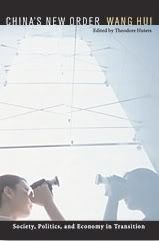Focus: Intellectual Property
China's 2006 IPR Review
China has pledged to step up efforts to protect intellectual property rights and released a plan to do so, but the results have been mixed
by Erin Ennis and Robert Alaimo
Over the past year, Beijing has taken several significant steps to better protect intellectual property rights (IPR) in China. Despite those broad efforts, legal shortcomings remain, and improvements are needed. In March 2006, the PRC Office of the National IPR Protection Working Group released China's 2006 Action Plan on IPR Protection, which outlines various policy objectives for the PRC government and the private sector. It focuses on four major areas—trademarks, copyrights, patents, and imports and exports—and suggests legal and interpretational changes, enforcement efforts, transparency improvements, advocacy and outreach programs, and training and exchange programs for each area. Though the action plan does not set a timeframe for meeting all of its outlined goals, Beijing successfully met some of the benchmarks by the end of 2006.
Trademarks
The PRC government is revising the Trademark Law, which was issued in 1993 and first revised in 2001, for the second time. China currently uses a "first-to-file" approach, which means that the first company to file for a trademark is granted that trademark in China, even if another company has already been using that trademark but has not registered it. Such a provision can create problems for multinational corporations (MNCs) that have registered their trademarks abroad because China does not automatically recognize those trademarks.
Although trademark enforcement is still weak in general, amendments to the Implementing Regulations of the Trademark Law may improve the legal structure for enforcement. Under these amendments, foreign companies' local branches or subsidiaries may directly register trademarks without a domestic agent, potentially expediting the registration process.
US-based Pfizer Inc. has taken several trademark cases to PRC courts. In December, the First Intermediate People's Court of Beijing (FIPC) ruled that Pfizer's trademark for Viagra, the male impotence drug, is valid and ordered two Chinese companies to stop producing counterfeit pills. Despite registering a small victory, Pfizer's legal battles are not over. The same Beijing court ruled in January 2007 that several Chinese drugmakers' use of Weige, the common Chinese name for Viagra, does not constitute trademark infringement. Pfizer is currently appealing the case.
Copyrights
China is also revising the Copyright Law. Beijing has conducted several high-profile national and local crackdowns on copyright infringement, one of which was "Hawk Action," a 2005 national campaign that resulted in the arrest of 5,981 counterfeiters. PRC officials followed with the launch of "Operation Mountain Eagle" in 2006, a campaign designed to not only toughen copyright enforcement but also analyze and improve enforcement techniques. Throughout 2006, the PRC government undertook a series of enforcement campaigns dubbed Operation Sunshine I, II, and III, which focused on audiovisual IPR violations. (Operation Sunshine III ended on January 1, 2007.) In a step toward stronger IPR protection, the PRC government issued a regulation, which took effect in July 2006, that allows authorities to impose administrative fines of up to ¥100,000 ($12,500) per copyright infringement of works disseminated over networks.
These efforts are not nearly comprehensive enough to quiet analysts who are skeptical of the campaigns' long-term impacts. Moreover, despite intensified efforts to curb IPR violations, the PRC legal system not only lacks the teeth necessary for permanent improvements in enforcement but has issued what appear to be inconsistent rulings. For example, Baidu.com, Inc., the parent company of one of the most popular Internet search engines in China, has been sued several times for using a practice called "deep linking," which allows Baidu users to download unlicensed versions of copyrighted songs through its MP3 search engine. The Internet company has had mixed results in fending off challenges to its practices. Baidu first lost a deep linking case brought by Shanghai Busheng Music Culture Media Co., an affiliate of UK-based EMI Group plc, in September 2005 and was ordered to pay ¥68,000 ($8,781) in damages. (Baidu is currently appealing the case.) In the same month, the International Federation of the Phonographic Industry (IFPI) filed a similar, but separate suit against Baidu on behalf of four international music giants, including EMI. FIPC in November 2006 ruled in favor of Baidu, noting that the search engine simply provided links to websites from which songs could be illegally downloaded. While IFPI is appealing the latest ruling, EMI has dropped out of the appeal and has instead struck a deal with Baidu to provide legal, downloadable songs.
In the most recent demonstration of the apparent inconsistency with which PRC courts interpret China's IPR laws, FIPC in late December 2006 fined Sohu.com, Inc., another popular web portal in China, about $140,000 for allowing its users to download US movies illegally. The same Beijing court is currently hearing another copyright infringement case, in which a Chinese daily, Beijing News, is seeking $400,000 from web company Tom.com Corp. for the unauthorized republication of more than 25,000 Beijing News articles.
Patents
The process of revising the Patent Law began in January 2006 and is expected to be completed in 2008. The latest proposed revisions would amend provisions regarding novelty standards and the acquisition of design patents, among others (see Changing China's Patent Regime).
Reforms in patent enforcement have focused on training and certification programs for patent officials and regulators. Over the past year, the PRC government has held training courses for all positions related to patent distribution and maintenance. In September 2006, the State Intellectual Property Office (SIPO) established training courses for patent officers, certification programs for fraud prevention, and a review and examination system for clarifying responsibilities and penalties in criminal and administrative cases.
In a positive legal development for foreign patent holders in China, a June 2006 court ruling overturned the PRC Patent Reexamination Board's decision and upheld Pfizer's patent on Viagra (see Judicial Review: Time for a Closer Look).
Imports and exports
The 2006 action plan includes provisions to strengthen IPR enforcement at China's borders, and the PRC government has taken additional steps to address the import and export of illegal goods. Among those efforts, Beijing is drafting new regulations that could alter the bond-posting process—under current rules, brand owners must post a bond when requesting PRC Customs to seize infringing goods (see the CBR November-December 2004, p.30)—and has launched studies on customs enforcement and coordination. US Customs and Border Protection recently reported that it seized $125.6 million worth of counterfeit goods from China in 2006—81 percent of all IPR-infringing goods seized at US borders that year.
Criminal proceedings and value thresholds
In 2005, China agreed to raise the number of criminal prosecutions relative to the number of administrative prosecutions.
In 2005, China agreed to raise the number of criminal prosecutions relative to the number of administrative prosecutions. IPR-related cases must still meet minimum value thresholds to be considered for criminal prosecution, however. To initiate criminal proceedings, the value of seized goods must reach at least ¥50,000 ($6,300) for individuals and ¥150,000 ($19,000) for corporations.
US Secretary of Commerce Carlos Gutierrez and many other US officials have described these thresholds as a violation of China's World Trade Organization (WTO) Agreement on Trade-Related Aspects of IPR, and as the CBR went to press, the Office of the US Trade Representative (USTR) was considering a WTO case that may include this issue. In March 2006, China released an opinion that calls for the prompt transfer of administrative cases to public security bureaus and grants people's procuratorates the power to enforce such transfers. The opinion, however, does not define "prompt transfer" and allows a public security bureau up to 10 days to determine whether to accept a criminal case, though it may have up to 30 days when considering a case that is deemed "serious" or "complicated."
JCCT commitments
Acceding to the World Intellectual Property Organization (WIPO) treaties was one of China's 2005 Joint Commission on Commerce and Trade (JCCT) commitments, and Beijing promised to submit to the PRC National People's Congress (NPC) a full legislative package by June 30, 2006 that would bring the country into compliance with WIPO requirements. But as of July 2006, only a few regulations governing IPR protection on the web had taken effect, falling short of the full legislative package. China took another step toward fulfilling its JCCT commitments in late 2006 when the Standing Committee of the 10th NPC approved the WIPO Copyright and Performance and Phonograms treaties.
As part of China's 2006 JCCT commitments, Beijing agreed to verify that all computers used by the government and state-owned enterprises are loaded with legal software. China has also begun to employ new strategies at trade shows to monitor and punish entities that display illegal products, another part of the 2006 Action Plan (see the CBR, January-February 2007, Showtime in China).
Into 2007
As China ushers in the Year of the Pig, it is preparing to unveil a new national strategy for IPR protection, as it did in 2006. A draft was completed and submitted to the State Council for approval on December 25, 2006. The strategy will likely be approved and released in the second half of 2007, according to SIPO. (In February, SIPO issued a separate 2007 IPR work plan that calls for better coordination of IPR strategy and intellectual property development among various government levels, improving patent information systems, and supporting the revisions to the Patent Law.)
This year may mark a new phase in US efforts to address China's IPR enforcement deficiencies, in part because US trade officials have made IPR enforcement a top priority issue under the newly formed Strategic Economic Dialogue. In addition, USTR is undertaking a special provincial review of IPR enforcement in China—announced in its annual report on international IPR enforcement in March 2006—and solicited public comments on its proposal in February 2007. Moreover, the US Congress has made the Bush administration's record on IPR enforcement in China a top priority in the first trade hearings of the 110th Congress. A WTO case against China's IPR enforcement record could address some of the congressional concerns.***
Link




0 Comments:
Post a Comment
Subscribe to Post Comments [Atom]
<< Home